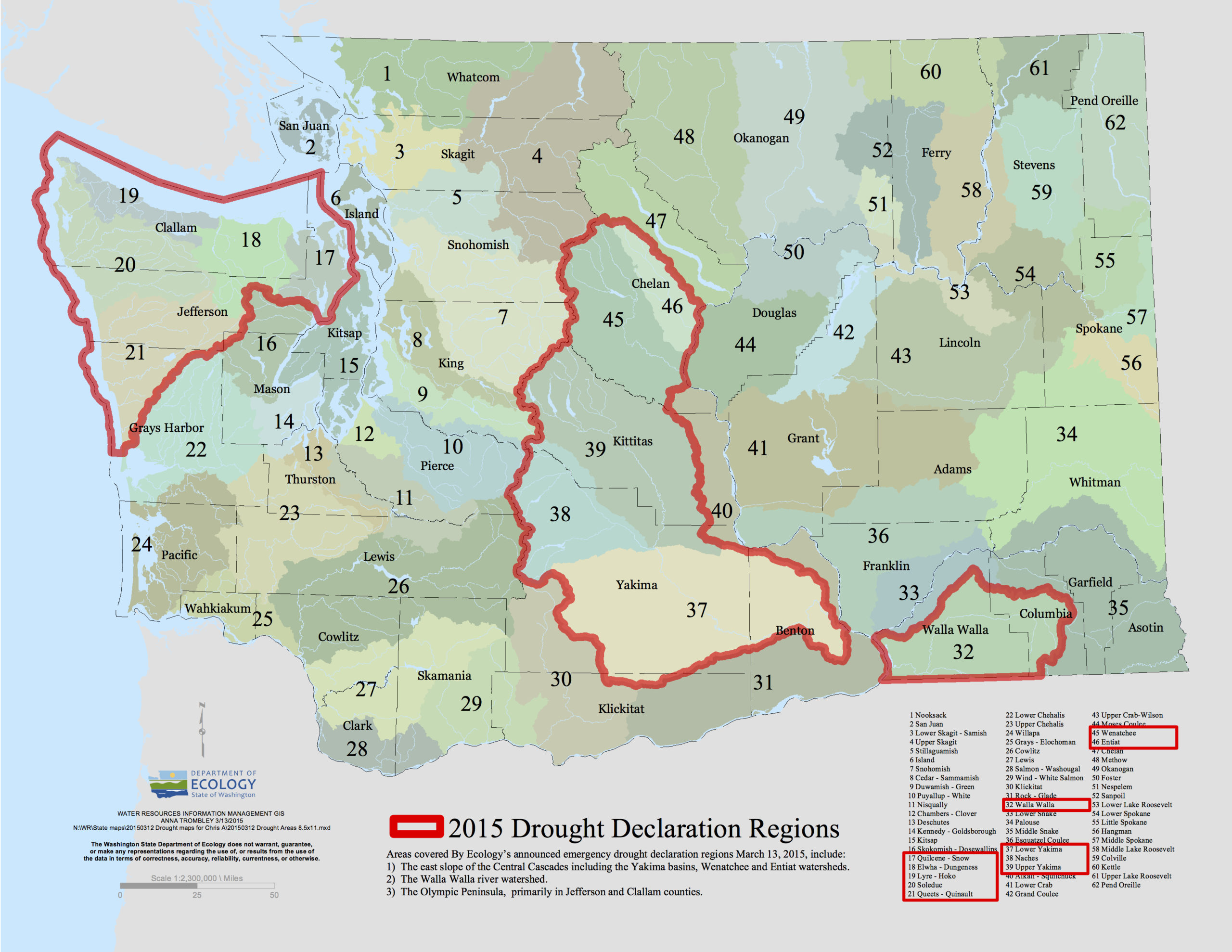
Local and state agencies told a Senate committee on Tuesday that they want flexibility in responding to — and anticipating — drought conditions, which will affect several regions in Washington this year.
Earlier this month, Gov. Jay Inslee declared a drought emergency for the Olympic Peninsula, east side of the central Cascade Mountains including Yakima and Wenatchee, and Walla Walla region after a mild winter that caused low snowpack. The melting snow helps fill the state’s water sources such as ground water and rivers in the spring and summer.
According to the governor’s office, snowpack is 7 percent of normal in the Olympic Mountains, 67 percent of normal in the Walla Walla region and ranges from 8 to 45 percent of normal across the Cascades.
While most other areas of the state won’t be hit as hard by drought conditions, the lack of water could affect the agriculture-dependent regions of Yakima, Wenatchee and Walla Walla.
The Department of Ecology also requested $9 million in drought relief, which would pay for agricultural and fisheries projects, emergency water-right permits, changes to existing water rights, and grant water-right transfers.
The Senate Committee on Agriculture and Water and Rural Economic Development heard an update on Tuesday from the Department of Ecology and others on the upcoming water shortage.
Sequim City Attorney Craig Ritchie said the the city would like to expand the uses of reclaimed water — which is treated sewage water — but is barred by regulations. Ritchie says possibilities for using the reclaimed water include irrigation and using it for toilet water in new construction.
“The laws and rules on what we can do with our reclaimed water are partly based on the fact that before it was purified as well as it is, it was called effluent, and most people really don’t want the effluent anywhere,” Ritchie said.
Ritchie said a drought may be a good time to revisit water regulations.
The committee also heard testimony on HB 1836, which would expand the ability of the Department of Ecology and the Legislative Drought Committee to react to expected drought conditions, before the governor formally declares it.
Jennifer Holderman of the Department of Ecology said that the bill would give the department more capacity to plan ahead, including the ability to negotiate and secure access to water supplies before drought conditions, when those prices are highest.
Evan Sheffels of the Washington Farm Bureau agreed. “It would add some flexibility in the drought preparations that the department gets engaged in,” he said.
You can watch the update in the TVW archives.